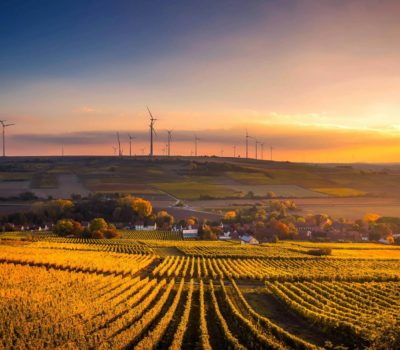The Pivotal Role of Bioenergy in Shaping a Sustainable Future
Our global community is actively committing to exploring alternative energy sources that can meet our growing demands whilst minimising the environmental impact.
Within this pursuit, bioenergy plays a key role. Bioenergy is derived from organic materials such as plants and waste. Throughout this blog post, we will delve into the pivotal role of bioenergy and its potential to shape a sustainable and environmentally responsible future.
Understanding Bioenergy:
Bioenergy harnesses the power stored in organic materials to produce heat, electricity, or fuel. Biomass encompasses organic matter like wood, agricultural residues, and organic waste. On the other hand, biofuels are liquid or gaseous fuels derived from biogas.
Environmental Benefits of Bioenergy:
Reducing Greenhouse Gas Emissions:
The first, and arguably the most significant, advantage of bioenergy lies its potential to reduce greenhouse gas emissions. Bioenergy releases carbon dioxide during combustion, but unlike fossil fuels, this carbon is part of a natural carbon cycle.
Acting as a Renewable Resource:
Biomass is a renewable resource that can be sustainably managed. Practicing responsible forestry and energy crop cultivation ensures a constant supply of biomass without depleting natural resources. Compared to non-renewable fossil fuels, this stands as a huge contrast as they are significantly contributing to environmental degradation.
Prevention of Waste and Landfill Impact:
Finally, waste management is a mounting environmental issue. Organic waste, which would otherwise end up in landfills and produce harmful methane emissions, can be converted into valuable biogas through anaerobic digestion. As well as providing energy, it also provides cleaner alternatives to landfills.
Technological Advancements in Bioenergy:
Advanced Production of Biofuel:
Technological advancements have fueled the development of advanced biofuels, which offer efficiency and reduced environmental impact compared to traditional biofuel. Include in this is second-generator biofuels derived from waste materials. This presents a more sustainable and scalable solution for a number of sectors.
Biogas and Anaerobic Digestion:
Biogas production through anaerobic digestion is a promising technology for managing organic waste whilst generating energy. During this process, organic matter is broken down in the absence of oxygen. Then, biogas is produced that can be used for heating, electricity generation, or as a vehicle fuel. Alongside this, the residues from anaerobic digestion can also be used as a nutrient-rich fertiliser, closing the loop on resource use.
Challenges and Solutions:
A common concern surrounding bioenergy is the competition for available land needed for food crops. In order to address this, sustainable land-use practices need to be implemented. This will ensure that bioenergy production doesn’t compromise food security or natural ecosystems.
Alongside this, there is no need for ongoing innovation to improve efficiency whilst reducing costs. Undergoing research and development in areas such as biomass conversion technology enhances the pivotal role of bioenergy. Making it more attractive for widespread adoption.
Looking Ahead:
As we navigate the complex, but hopeful, transition to a more sustainable future, bioenergy emerges as a dynamic component within the energy mix. Its renewable nature and ability to address environmental challenges, makes it a key player in the global effort to combat climate change.
At Visuna, we are always thinking ahead to a more sustainable future. Speak to our team today to find your next role within the bioenergy sector.






